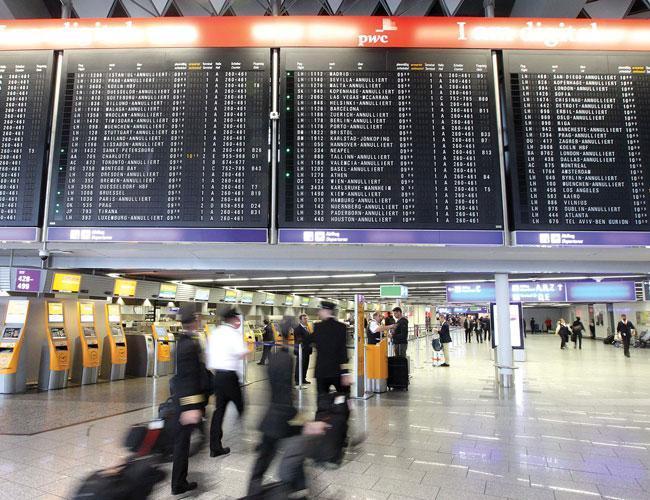
Thousands of passengers at four German airports, including the biggest hub Frankfurt, were stranded on April 10 as ground staff and other public sector workers staged walkouts across the country to increase the pressure in a pay dispute.
Lufthansa said on April 9 it was cancelling more than 800 of its planned 1,600 flights on April 10 and Frankfurt airport operator Fraport has warned of disruption.
As well as Frankfurt, airports in Munich, Cologne and Bremen were hit. The industrial action also affected nurseries, rubbish collection services and swimming pools in several German states.
“We want to send a clear signal to employers with these massive strikes,” Frank Bsirske, head of Verdi, Germany’s biggest labor union for service sector employees, said.
“We expect an offer to be made for the third round of talks that is worthy of discussion so we can reach a good solution.”
He said the union would escalate the dispute if employers did not present an offer next week. The third round of talks start on April 15.
Verdi has called for a 6 percent pay rise for its 2.3 million public sector employees at the federal and local level. Germany’s federal government and municipalities have rejected that, saying such an increase would force them to outsource jobs.
Europe’s biggest economy is in robust shape, with record tax revenues and a budget surplus. Rising employment, inflation-busting pay hikes and low borrowing costs are fuelling a consumer-led upswing.
In the industrial sector, 3.9 million workers agreed on a pay and flexible working hours deal in February that amounted to a roughly 4 percent rise per year for 2018 and 2019. Inflation edged up to 1.5 percent in March.
The European Central Bank is keeping a close eye on the German wage negotiations for any sign that wage growth is picking up, potentially lifting inflation and allowing the ECB to start winding down its massive stimulus program.
Neighboring France has also faced industrial action in the last few weeks in protests against President Emmanuel Macron’s planned reforms.